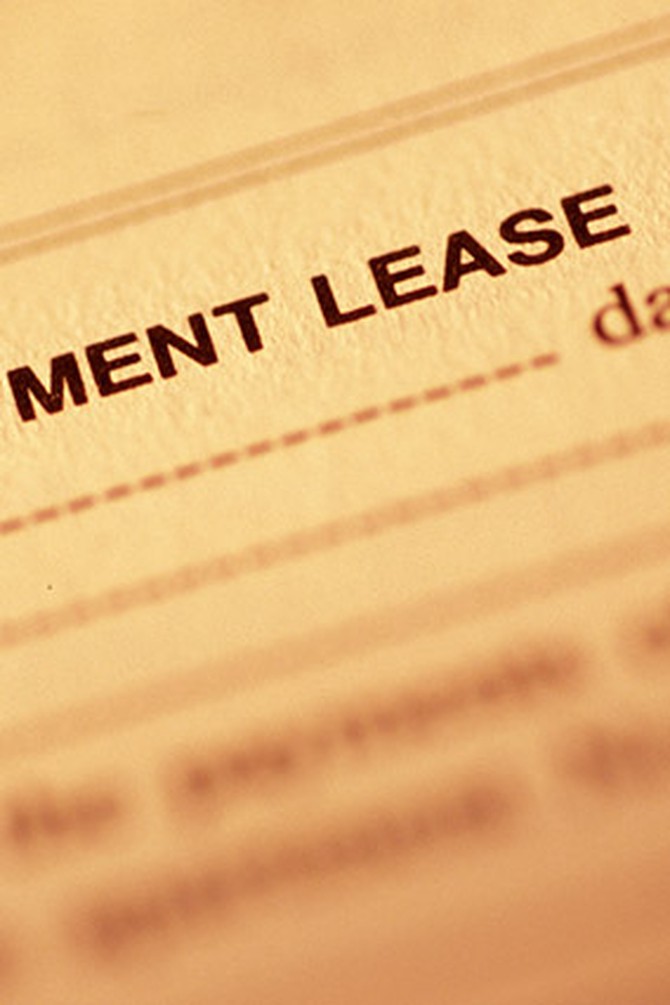6 Reasons You Are Making Less Than You Should
Here's how the gender of your boss's child and other surprising factors can affect your salary.
By Lynn Andriani

Photo: Thinkstock
You Don't Live in Washington, D.C.
Forbes.com recently ranked the top 20 cities where women earn the most, based on data from the 2011 American Community Survey by the U.S. Census Bureau. Washington, D.C.; San Jose, California; and Bridgeport, Connecticut, top the list. (Disappointingly, there are only four communities in which women earn equal to or more than men: Key West, Florida; Madera, California; Fort Payne, Alabama; and Sebring, Florida.) The list suggests that if you are looking to relocate, consider going to an urban center with a high concentration of top-rated universities and professional jobs requiring highly developed skills; both factors push up the earnings of the women who live in such a place.

Photo: Thinkstock
You're Waiting for One Word
It seems obvious that if women see the word "negotiable" in reference to the salary from a job posting, they're more likely to ask for more money, but a new paper from the National Bureau of Economic Research points out that we shouldn't have to see that word in order to broach the subject. That's because the group found that men are more likely to negotiate—even if the employer doesn't directly state that they're willing to consider options. So why wait for an invitation? Just do it.

Photo: Thinkstock
Your Male Boss Has a Son
Going on the hunch that the transition to fatherhood has a profound influence on a man's values, a group of business researchers recently investigated how the birth and gender of a male CEO's child influences the wages of his male and female employees. Among their fascinating findings: When a CEO and his wife have a daughter, especially if she's their first child, employees' salaries go up. Even better, female workers gain more—their wages increase by 1.1 percent, while male workers only see an increase of 0.6 percent. By comparison, when a boss has a son, female employees' salaries drop 0.2 percent.

Photo: Thinkstock
You Mentioned Your Rent
Women tend to frame salary negotiations around personal needs, using lines like "I need this raise in order to pay for my child's school tuition" or "My rent went up." LinkedIn career expert Nicole Williams says this is a mistake. Your boss doesn't care about what you need the money for (and even if he or she does, bringing a personal element into the conversation might make your employer feel uncomfortable or, worse, guilty). Instead, write out a detailed list of your accomplishments and how you've saved the company money or brought revenue in. Your argument will be stronger, and your confidence level will be higher too.

Photo: Thinkstock
You're Shaking Hands the Wrong Way
We've heard a lot about the dreaded wimpy grip. But body language expert Patti Wood, who wrote Snap: Making the Most of First Impressions, Body Language and Charisma, says the single most important part of the shake is palm-to-palm contact. This telegraphs that you're open, honest and confident. When you're sitting down to talk money with a would-be boss, don't just stick your fingers out and leave it at that. Dig them down and scoop them up into the other person's hand, making sure your palm exerts pressure against his or her palm. And shake hands for an adequate length of time, Wood says, which means two or three pumps.

Photo: Thinkstock
You're Nice
A recent study by the American Association of University Women (AAUW) found that women's choices (their college major, occupation and hours at work) account for about two-thirds of the pay gap between women and men. The remaining third, researchers say, comes down to bias and discrimination in the workplace. According to the study, "women are still expected to be 'nice,' and women who negotiate for a higher salary can be perceived negatively." Some evidence even indicates that employers tend to penalize women more than men for initiating negotiations. Consider taking a salary negotiation workshop such as $tart $mart to toughen up.
Next: How to save $339 in 33 days
Next: How to save $339 in 33 days
Published 03/06/2013

